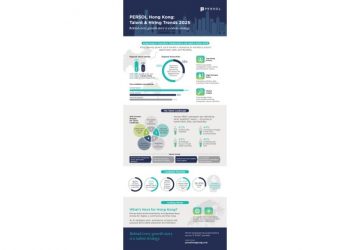If you’re offered a free cookie, you might say yes. But if you’re paid to eat a free cookie, would your response be the same?
In our new research, twice as many people were willing to eat a cookie when they weren’t offered payment compared with when they were.
From a purely economic perspective, our findings reflect irrational decision making. Objectively, a cookie plus money is better than just a cookie.
But people aren’t purely economic. They’re social animals with a tendency to look for hidden reasons behind other people’s behaviours.
In the case of overly generous deals, people are expecting a “phantom cost” – one hidden in the initial offer. And this expectation influences their decision to accept something or not.
Research participants who were offered a free cookie plus payment thought maybe the cookies were poisoned. Or maybe someone spat on them. Or they expected they would then owe a favour to the person handing out the treats once the cookie was eaten.
Too good to be true
Our cookies study was just one of ten experiments involving 4,205 participants in the United States and Iran.
We tested how phantom costs influenced people’s choices to accept or reject overly generous economic offers.
Each study gave people an offer. They had to decide whether to accept or not, and then explain why.
One study asked participants to imagine they were a truck driver and looking online for a job. All the jobs were described the same way, but we varied the wage. People offered the normal US$15 per hour were perfectly willing to take the job.
Others were offered more than the normal wage. The participants in this group imagined phantom costs. And the higher the wage they were offered, the worse the costs they imagined.
When offered $20 or $25 per hour, participants imagined the role involved more responsibilities or harder work. But they considered this to be worth it. Most people preferred a job that paid a bit more than normal, despite the expectation of phantom costs.
However, when we offered way too much money – more than $900 per hour – most people rejected the job they were willing to do for $15.
Why? They imagined far worse phantom costs: driving for the mob, carrying dangerous radioactive waste or smuggling drugs across the border. A suspiciously high hourly rate or wage can end up putting people off.
Suspicion is global
We repeated this experiment with different jobs, different normal wages, and in different countries.
In both the US and Iran, despite very different types of economy, people showed the same pattern of suspicion and rejected very high wages. The only difference was that in Iran the expected wages were lower, so the wages didn’t have to be high by US standards to become suspicious.
Another experiment tested how phantom costs could affect purchases of plane tickets involving a hypothetical choice between three flights.
One cost $235, another $275. When the third option was $205, most people chose that. However, if the third option was $15, hardly anyone chose the cheapest flight. They rejected it because they imagined horrible phantom costs such as terrorists and plane crashes.
However, when we provided a reason for the low price – very uncomfortable seats – most people preferred the $15 flight. Uncomfortable seats are not usually a selling point. But they explained the cheap price, so people didn’t search for other, dangerous explanations.
Sufficient explanations for something being a great deal remove people’s tendency to imagine phantom costs.
A good offer, not a suspicious one
Businesses face a balancing act when it comes to offering customers a good deal.
On the one hand, the expectation of phantom costs decreases interest in the offer. On the other hand, price-sensitive consumers are often looking for ways to get the best deal.
To avoid the pitfalls of phantom costs, businesses need to communicate their reasons for offering a particularly good deal. A “holiday sale” or “end-of-season sale”, for example, may explain why items are discounted.
In the job market, identifying “good performance” as a reason for an employee’s pay raise can sidestep the expectation of hidden downsides – such as an increased workload.
It’s clear people are not merely self-interested economic beings. We’re savvy, psychological beings capable of reading into the motivations of others to protect ourselves from offers that seem too good to be true.
![]()
Andrew Vonasch does not work for, consult, own shares in or receive funding from any company or organisation that would benefit from this article, and has disclosed no relevant affiliations beyond their academic appointment.
















